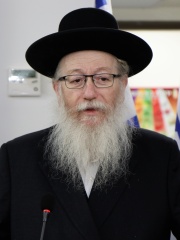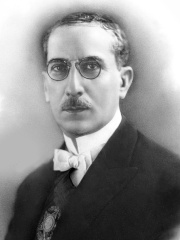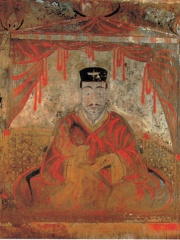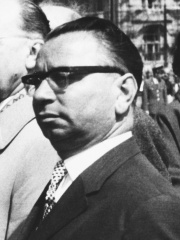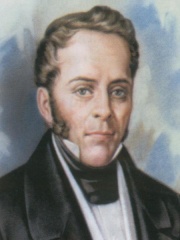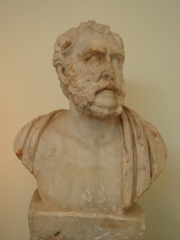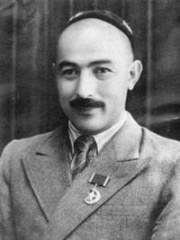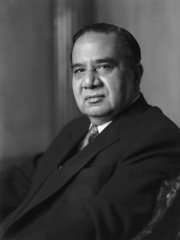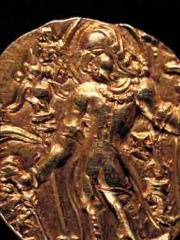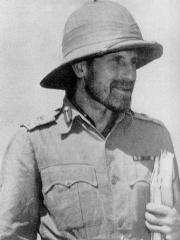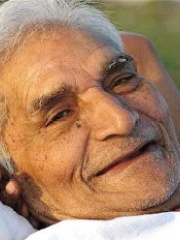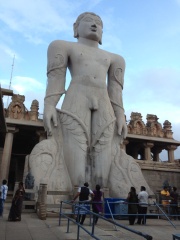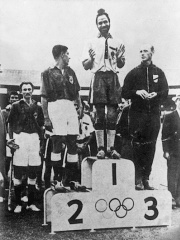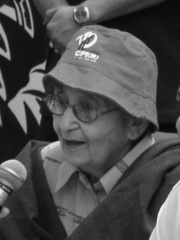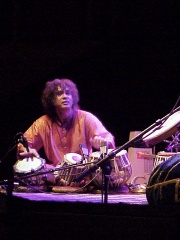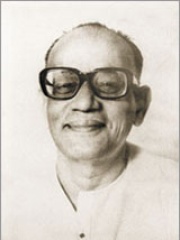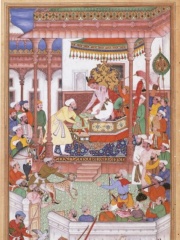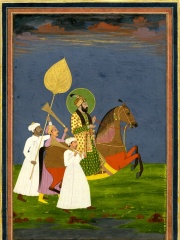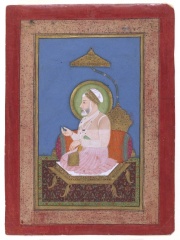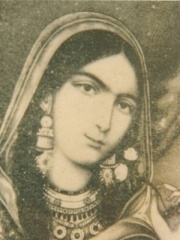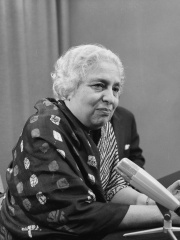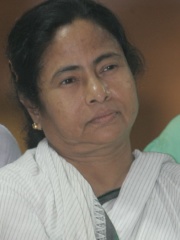Politician
Rani Padmini
EN.WIKIPEDIA PAGE VIEWS (PV)
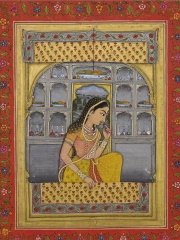
 Rani Padmini
Rani Padmini
Padmini, also known as Padmavati or Rani Padmavati, was a 13th–14th century queen of the Kingdom of Mewar in India. Several medieval texts mention her, although these versions are disparate and many modern historians question their overall authenticity. The Jayasi text describes her story as follows: Padmavati was an exceptionally beautiful princess of the Sinhalese kingdom (in Sri Lanka). Ratan Sen, the Rajput ruler of Chittor Fort, heard about her beauty from a talking parrot named Hiraman. Read more on Wikipedia
Her biography is available in 23 different languages on Wikipedia (up from 21 in 2024). Rani Padmini is the 12,176th most popular politician (down from 10,545th in 2024), the 475th most popular biography from India (down from 381st in 2019) and the 157th most popular Indian Politician.
Memorability Metrics
Page views of Rani Padmini by language
Among Politicians
Among politicians, Rani Padmini ranks 12,176 out of 19,576. Before her are Yaakov Litzman, Pierre Basile, Francesco Bussone da Carmagnola, Arthur Bernardes, Gogugwon of Goguryeo, and Mohammed Fahim. After her are Kurszán, Juhan Kukk, Gyula Kállai, Manuel Gómez Pedraza, Polemon of Laodicea, and Ehmetjan Qasim.
Most Popular Politicians in Wikipedia
Go to all RankingsYaakov Litzman
1948 - Present
HPI: 59.14
Rank: 12,176
Pierre Basile
1200 - Present
HPI: 59.14
Rank: 12,177
Francesco Bussone da Carmagnola
1385 - 1432
HPI: 59.14
Rank: 12,178
Arthur Bernardes
1875 - 1955
HPI: 59.14
Rank: 12,179
Gogugwon of Goguryeo
HPI: 59.14
Rank: 12,180
Mohammed Fahim
1957 - 2014
HPI: 59.13
Rank: 12,181
Rani Padmini
HPI: 59.13
Rank: 12,182
Kurszán
847 - 904
HPI: 59.13
Rank: 12,183
Juhan Kukk
1885 - 1942
HPI: 59.13
Rank: 12,184
Gyula Kállai
1910 - 1996
HPI: 59.13
Rank: 12,185
Manuel Gómez Pedraza
1789 - 1851
HPI: 59.13
Rank: 12,186
Polemon of Laodicea
200 - 200
HPI: 59.13
Rank: 12,187
Ehmetjan Qasim
1914 - 1949
HPI: 59.13
Rank: 12,188
In India
Among people born in India, Rani Padmini ranks 475 out of NaN. Before her are Huseyn Shaheed Suhrawardy (1892), Rajesh Khanna (1942), Skandagupta (500), Orde Wingate (1903), Baba Amte (1914), and Bahubali (null). After her are Shudraka (500), Balbir Singh Sr. (1923), Lakshmi Sahgal (1914), Charles Gmelin (1872), Zakir Hussain (1951), and Prabhat Ranjan Sarkar (1921).
Others born in India
Go to all RankingsHuseyn Shaheed Suhrawardy
POLITICIAN
1892 - 1963
HPI: 59.20
Rank: 469
Rajesh Khanna
ACTOR
1942 - 2012
HPI: 59.17
Rank: 470
Skandagupta
POLITICIAN
500 - 467
HPI: 59.17
Rank: 471
Orde Wingate
MILITARY PERSONNEL
1903 - 1944
HPI: 59.16
Rank: 472
Baba Amte
SOCIAL ACTIVIST
1914 - 2008
HPI: 59.15
Rank: 473
Bahubali
POLITICIAN
HPI: 59.15
Rank: 474
Rani Padmini
POLITICIAN
HPI: 59.13
Rank: 475
Shudraka
WRITER
500 - 500
HPI: 59.12
Rank: 476
Balbir Singh Sr.
ATHLETE
1923 - 2020
HPI: 59.11
Rank: 477
Lakshmi Sahgal
POLITICIAN
1914 - 2012
HPI: 59.08
Rank: 478
Charles Gmelin
ATHLETE
1872 - 1950
HPI: 59.04
Rank: 479
Zakir Hussain
COMPOSER
1951 - 2024
HPI: 59.03
Rank: 480
Prabhat Ranjan Sarkar
PHILOSOPHER
1921 - 1990
HPI: 59.02
Rank: 481
Among Politicians In India
Among politicians born in India, Rani Padmini ranks 157. Before her are Abdul Rahim Khan-I-Khana (1556), Farrukhsiyar (1685), Alamgir II (1699), Huseyn Shaheed Suhrawardy (1892), Skandagupta (500), and Bahubali (null). After her are Lakshmi Sahgal (1914), Sanjay Gandhi (1946), N. Chandrababu Naidu (1950), Begum Hazrat Mahal (1820), Vijaya Lakshmi Pandit (1900), and Mamata Banerjee (1955).
Abdul Rahim Khan-I-Khana
1556 - 1627
HPI: 59.36
Rank: 151
Farrukhsiyar
1685 - 1719
HPI: 59.30
Rank: 152
Alamgir II
1699 - 1759
HPI: 59.22
Rank: 153
Huseyn Shaheed Suhrawardy
1892 - 1963
HPI: 59.20
Rank: 154
Skandagupta
500 - 467
HPI: 59.17
Rank: 155
Bahubali
HPI: 59.15
Rank: 156
Rani Padmini
HPI: 59.13
Rank: 157
Lakshmi Sahgal
1914 - 2012
HPI: 59.08
Rank: 158
Sanjay Gandhi
1946 - 1980
HPI: 58.97
Rank: 159
N. Chandrababu Naidu
1950 - Present
HPI: 58.94
Rank: 160
Begum Hazrat Mahal
1820 - 1879
HPI: 58.84
Rank: 161
Vijaya Lakshmi Pandit
1900 - 1990
HPI: 58.69
Rank: 162
Mamata Banerjee
1955 - Present
HPI: 58.60
Rank: 163
